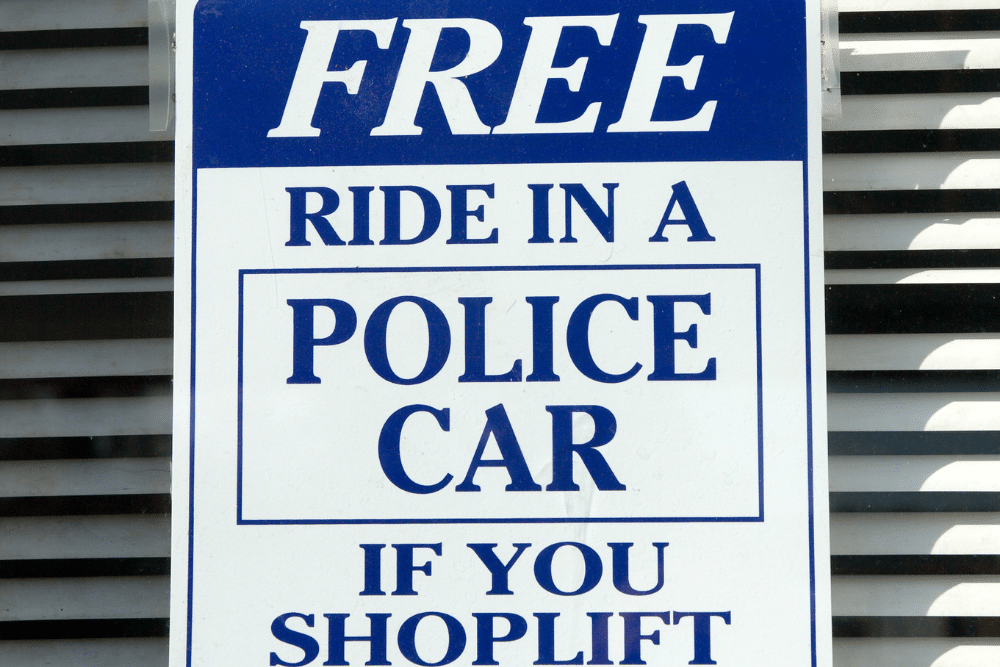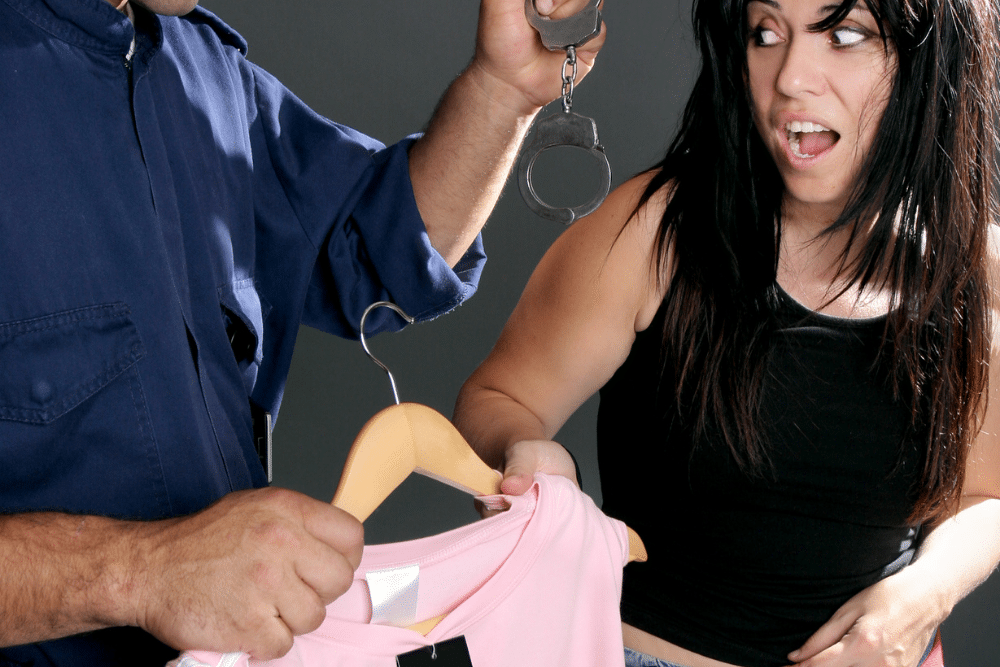Shoplifting forms a unique intersection of potential criminal and civil litigation.
Unlike theft from an individual’s house or car, shoplifters interact with a business trying to preserve its goods — and affordability. You’ve likely heard statistics about how shoplifting increases prices for paying consumers.
If you’re one of those paying customers, you wouldn’t appreciate false identification as a shoplifter. Unfortunately, that’s exactly what happened to an 11-year-old boy.
Safeway security guards stopped the boy in San Francisco after he purchased a sandwich for lunch. Even after the boy showed his receipt, the guards antagonized him to the point of tears. Eventually, the store manager came to the boy’s defense, and they let him go.
Now, his mother, teachers, and classmates are protesting outside that Safeway, asserting that the stop was racially charged.
In another instance in the UK, security asked a man to pay for newspapers he had purchased elsewhere. Although he explained the situation, the store detained and interrogated him, claiming video footage of the newspaper theft. Of course, that footage didn’t really exist. He was eventually released.
These examples show how presumptuous businesses can miss the mark. Read on to learn the ins and outs of store security systems, plus what to do if you’ve been wrongly accused of shoplifting.
Theft Laws in CO
Colorado includes shoplifting in its general theft statutes. This means that, like other types of theft, shoplifting charges and penalties correspond to the value of the stolen property.
The charges range from a class 1 petty offense — for stealing goods valued at $50 or less — to a class 2 felony for property valued at over $1 million.
Colorado singles out certain prohibitions specific to shoplifting. For instance, it’s illegal to knowingly conceal goods with the intent to steal.
It’s also prohibited to tamper with theft detection devices, those pesky “knobs” that cashiers occasionally forget to remove from clothing or purses. This covers manufacturing instruments to counter theft detection, owning such an instrument, or using it to remove the theft detector.

How Stores Generally Handle Shoplifting
Stores implement complex systems to catch shoplifters. They do this to prevent liability issues, since wrongly detaining an innocent civilian can tread tricky legal waters.
Usually, a business employs its own security team. Some members of the team are uniformed and on display, while others might hang back in plain clothes for covert surveillance.
In order to stop a potential shoplifter, security should see a person do the following:
- Approach merchandise.
- Select merchandise.
- Conceal or take merchandise from its place.
- Fail to pay for the merchandise.
- Leave the store with the merchandise.
Security guards must keep a constant watch on suspected shoplifters in order to back up their claims. This is where video surveillance in stores can come in handy.
However, stores have been known to cite video footage without basis in an attempt to evoke confession, as seen in the aforementioned news story.
The most pivotal point for you to remember: detainment is not an arrest. Businesses don’t have the power to make an arrest. Only police officers do.
Your Rights When Accused of Shoplifting in Colorado
Reasonable Cause & Right to Refuse Detainment
Like many states, Colorado offers businesses some liability protection via merchant statutes. These statutes allow stores to temporarily detain someone, with probable cause, to either await formal arrest or recover stolen goods.
For example, the statute would apply if a theft alarm goes off when you exit a store. In that situation, the merchant, employees, or security guard aren’t liable for:
- Slander
- False arrest
- False imprisonment
- Malicious prosecution
- Unlawful detention
Even so, you are allowed to challenge a store’s reason for detaining you. They can’t stop you on a hunch. There must be some observable evidence.
If you’re stopped based on witness testimony, you also have the right to challenge that witness.
Right to Remain Silent
Like an arrest, you don’t have to submit to interrogation — or really any discussion of your alleged crime — without an attorney present.
Keep in mind that writing is a form of communication, too. A store security guard might ask you to sign a written statement affirming the shoplifting. Even if a form seems innocent, reading it carefully won’t suffice. Don’t sign anything until a lawyer has looked it over.

Right to Refuse Search
Since business personnel aren’t police officers, they can’t search your bags or your person. Even official law enforcement needs a warrant or probable cause for search and seizure.
If they forcefully search your person or belongings, this counts as criminal assault. You may want to consult an attorney after the incident to pursue charges, especially if the shoplifting allegations were totally unsubstantiated.
What if you end up charged? Luckily, there are a number of defenses that you can potentially use.
About the Author:
Kimberly Diego is a criminal defense attorney in Denver practicing at The Law Office of Kimberly Diego. She obtained her undergraduate degree from Georgetown University and her law degree at the University of Colorado. She was named one of Super Lawyers’ “Rising Stars of 2012 & 2019” and a “Top 100 Trial Lawyers in Colorado” for 2012-2020 by The National Trial Lawyers. Both honors are limited to a small percentage of practicing attorneys in each state. Additionally, Expertise names her to its lists of the 25 Best Denver DUI Lawyers and 21 Best Denver Criminal Defense Lawyers, both in 2020. Ms. Diego has also been recognized for her work in domestic violence cases.





